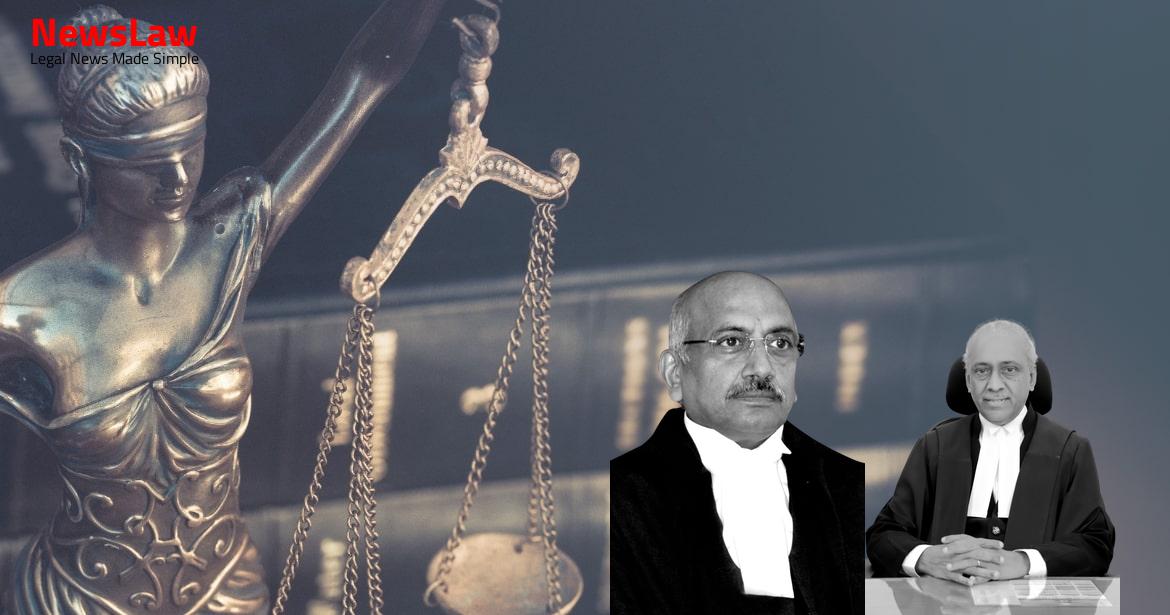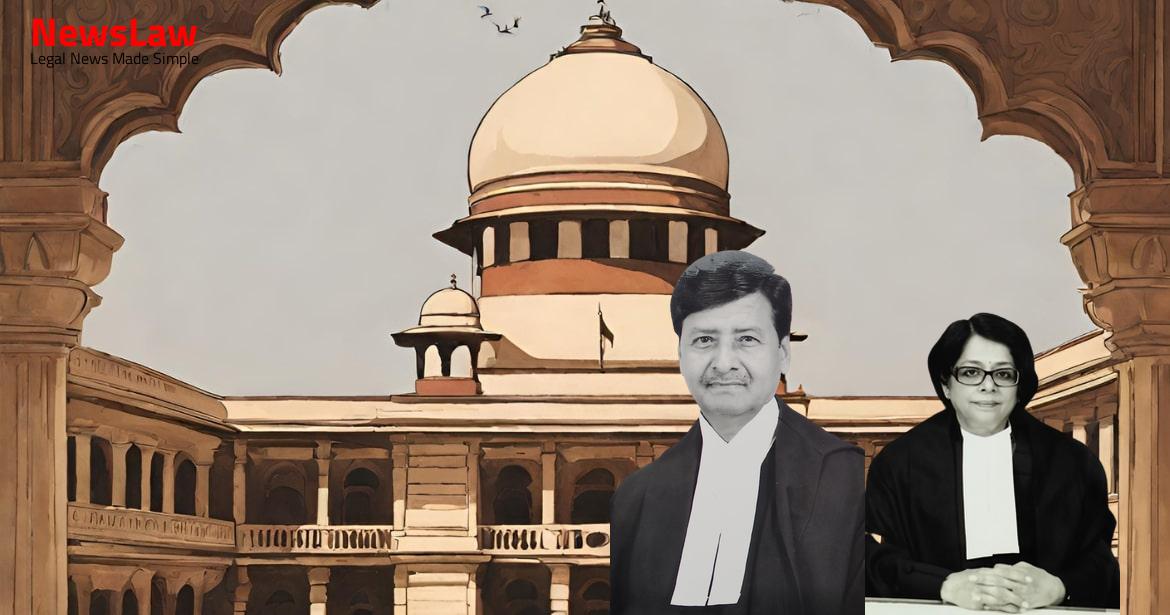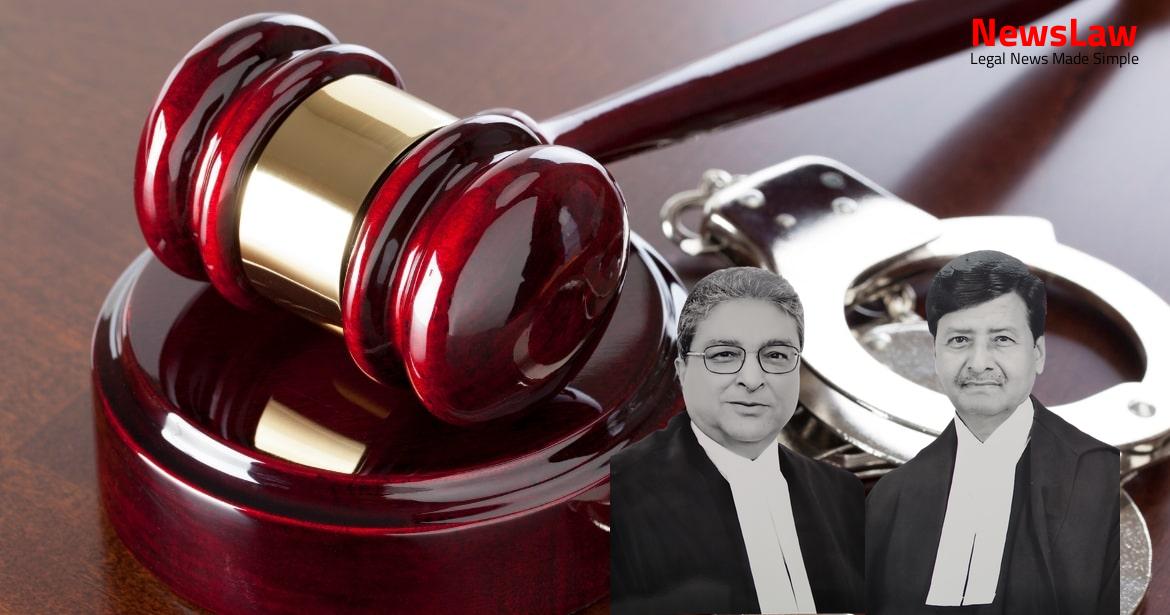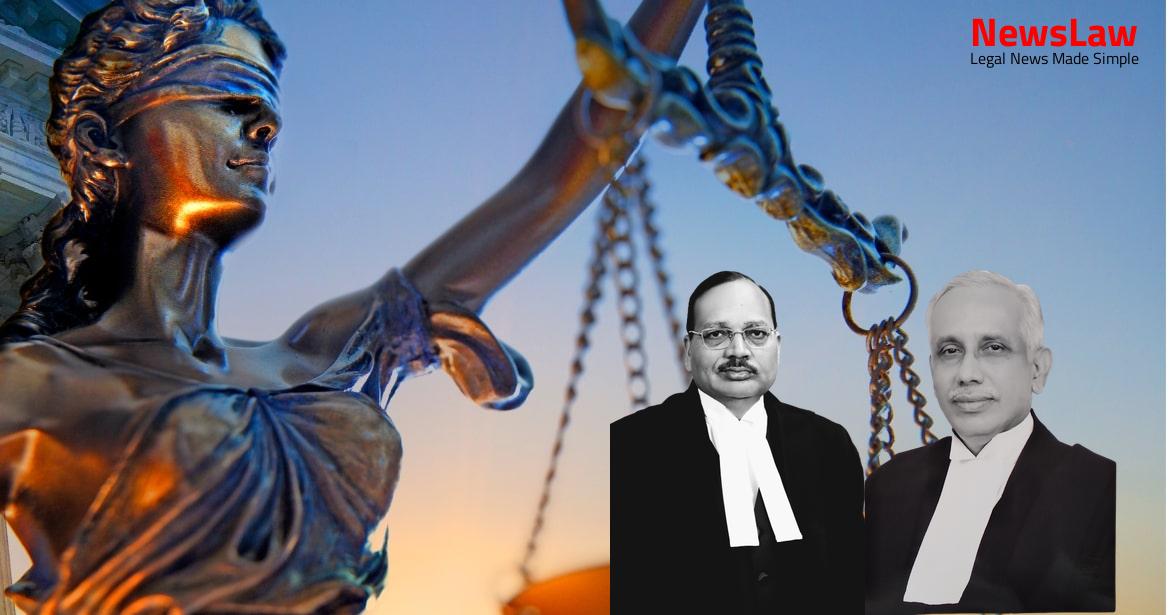Delve into the nuances of a legal case that unravels a controversy surrounding the qualification requirements for a lecturer appointment in higher education. The court’s in-depth legal analysis addresses the statutory qualifications, role of expert opinions, and the impact of ambiguous criteria on the selection process. Stay tuned to understand the critical aspects of this intriguing case.
Facts
- The State of U.P sanctioned one post of Lecturer in ‘Karm Kand’ in the Department of Sanskrit in the University.
- Shri Jai Prakash Pandey was initially appointed to the post but his regularisation was set aside by the High Court.
- The appellant was engaged as a Guest Lecturer to teach ‘Karm Kand’ after the regularisation of Shri Jai Prakash Pandey was set aside.
- A proposal to fill up the post on a regular basis was submitted and approved by the Vice-Chancellor.
- An advertisement was issued for the appointment to the post of Lecturer in ‘Karm Kand’ along with other posts in various departments.
- A spate of interim orders led to the matter being remanded back to the Chancellor, and some recommendations were accepted by the Executive Council.
- A controversy arose when the Chancellor issued oral orders restraining the Vice-Chancellor from convening Selection Committee meetings, but the High Court clarified that statutory functions of the Vice-Chancellor cannot be halted by oral orders.
- Written orders were later issued by the Chancellor, allowing the Selection Committees to proceed further with the appointments.
- The Division Bench of the Allahabad High Court dismissed the appellant’s writ petition on 14.05.2015.
- The Chancellor consulted experts and determined that ‘Karm Kand’ was different from Sanskrit, leading to the appellant’s disqualification for the appointment.
- A fresh order was issued by the Chancellor on 24.08.2012, rejecting the Selection Committee’s recommendation.
- The appellant challenged this order through a new writ petition in Writ Petition No. 63137 of 2012.
Also Read: Undisclosed Conviction for Dharna Under Police Act Leads to Overturned Election
Issue
- Appellant engaged as a Guest Lecturer with a remuneration of Rs.250/- per lecture
- Maximum remuneration capped at Rs.5000/- per month
- Engagement started in the year 2006
Also Read: Critical Analysis of Legal Principles in a High-Profile Criminal Case
Arguments
- Statutes do not have any prescription for the post of Lecturer in ‘Karm Kand’
- The advertisement did not specify any qualifications except a postgraduate degree in the relevant subject
- University should have clarified what constitutes relevant subjects before the selection process
- Initial objection was lack of subject experts in the Selection Committee, not the appellant’s qualification
- No specific qualifications were prescribed in the Statutes or in Advertisement No.2 of 2006 for the post of Lecturer in ‘Karm Kand’
Also Read: Interpretation of Stamp Duty Provisions
Analysis
- The order of the Chancellor found that the appellant did not hold a Master’s degree in ‘Karm Kand’.
- The question of whether subject experts were available in ‘Karm Kand’ became controversial.
- The High Court remanded the matter back to the Chancellor to ascertain the availability of subject experts in ‘Karm Kand’.
- The High Court failed to notice the error in the Chancellor’s conclusion about the differences between ‘Karm Kand’ and Sanskrit.
- The advertisement did not specify the requirement of a Master’s Degree in ‘Karm Kand’ for the lecturer post.
- The Chancellor gathered information beyond the scope of the High Court’s remand order, which affected the appellant’s case.
- The selection process in 2006 was marred by a conflict between the Chancellor and Vice Chancellor, leading to repercussions for the appellant.
- No universities were found to offer a postgraduate degree in ‘Karm Kand’, raising questions about the availability of experts in the subject.
- The Chancellor and High Court should have verified the statutory qualifications required for the lecturer post in ‘Karm Kand’.
- The Court criticized the decision of the Board of Appointment for choosing a candidate with a Master’s degree in Mathematics, reasoning that Mathematics is part of the curriculum in MCA.
- No candidate had a postgraduate degree in ‘Karm Kand’ for the appointment in the Department of Sanskrit, and the Selection Committee found that the appellant had a Master’s degree in the relevant subject.
- During the proceedings of the writ petition, the University’s Academic Council met on 22.08.2013.
- In the case of Ganapath Singh Gangaram Singh Rajput vs. Gulbarga University, the Court examined a scenario where applications were invited for a Lecturer position in MCA from candidates holding a postgraduate degree in the ‘relevant subject.’
Decision
- Appellant has been teaching the same subject for nearly 16 years
- Original Selection Committee consisted of Professors from the Department of Sanskrit which found him eligible for appointment
- A direction is issued to the respondent-University to regularise the services of the appellant
- No order as to costs is given
- Appeal allowed, impugned order of the High Court set aside, and the writ petition filed by appellant before the High Court is allowed
Case Title: DINESH CHANDRA SHUKLA Vs. STATE OF U.P . (2022 INSC 339)
Case Number: C.A. No.-001913-001913 / 2022



